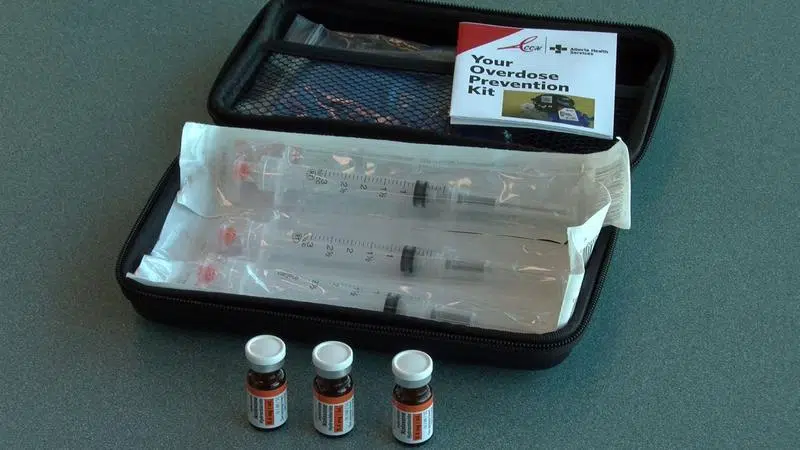
No current plans to extend Naloxone training to other city departments
MEDICINE HAT, AB — A Calgary city councillor’s recent experience saving a man who could have died from a drug overdose has once again brought Naloxone kits to the spotlight.
Over the weekend, Diane Colley-Urquhart, a Calgary city councillor, came across an unresponsive man in southwest Calgary. Colley-Urquhart, a registered nurse, grabbed the Naloxone kit she carried and used it to reverse the man’s overdose.
The incident has led to discussions about the opioid epidemic in Alberta and the use of Naloxone kits. Earlier this year, Colley-Urquhart passed out the kits to Calgary councillors and administration and gave them a demonstration on how to use the kit.
